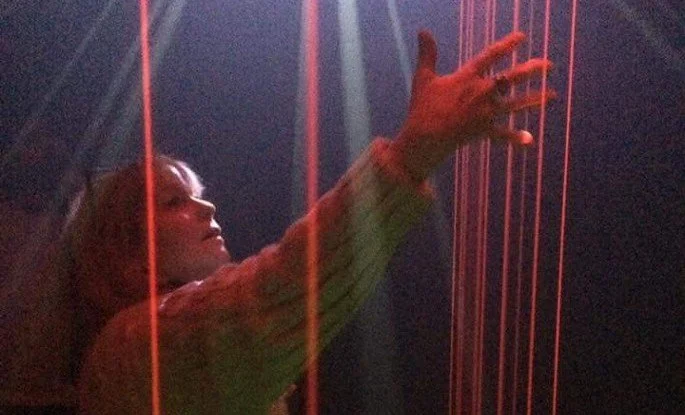Jesus was inviting them to let go of everything – even God .
Immediately following Peter’s rejection of reality, Jesus speaks to his disciples about self-denial,
“If any want to become my followers, let them deny themselves and take up their cross and follow me. For those who want to save their life will lose it, and those who lose their life for my sake will find it.” (Matthew 16:24-25, NRSV).
The self-denial that he spoke of was not fasting, or sexual abstinence, it was not giving up sleep or fun as many of the church fathers presumed, but was the emptying Miester Echkart described - an emptying of self, a kenosis that consents to be nothing, to do nothing, to know nothing.
Jesus was inviting them to let go of everything – even God (himself). In this kind of emptying, the self becomes a no-thing, sin becomes a no-thing and even more radically, God becomes no-thing.
Peter Rollins states that “speaking of God is never speaking of God but only ever speaking about our understanding of God.”[1] Our self-denial must be absolute, including even our ideas of God and our grasp on God. Our ideas of God are idols.
Simone Weil echoes Eckhart again when she says that God cannot be contained and thus our intuitions are tainted by human imagination and fantasy.[2] In this way, faith requires that God must become a no-thing to us, because God is necessarily not an object.[3] Weil adds that the object of attention must be nonexistent for another reason as well. Spiritual life is perfected in attention made of God’s love for God. Thus, the subject and object are identical with the activity of attention itself. This attention leads us deeper into the nonexistence of the object of attention.[4]
Perhaps the most radical aspect of this is the letting go Eckhart speaks of – letting go even ideas about God being good or compassionate.[5]
[1] Peter Rollins, How (Not) to Speak of God, (Brewster Massachusetts: Paraclete Press, 2006), 34.
[2] Simone Weil. Gravity and Grace, trans. Arthur Wills (Lincoln Nebraska: University of Nebraska Press, 1997) 147-149.
[3] Hase Shoto. “The Structure of Faith: Nothingness-qua-Love” in The Religious Philosophy of Tanabe Hajme: The Metanoetic Imperative. trans. T. Unno and J. Heisig (Berkely: Asian Humanities Press, 1990, 90-96.
[4] Simone Weil. Waiting for God. (Pennsylvania: Harper Perennial Modern Classics, 1st ed., 2009) 107, 112.
[5] Eckhart, 55.










